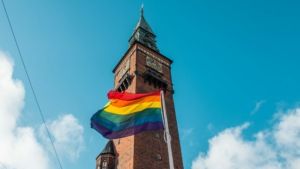News
Copenhagen 2021: Why Copenhagen?
This article is more than 4 years old.
How over a thousand events, human rights and a progressive history form the basis of Copenhagen 2021, and make Copenhagen the LGBTI+ capital of Northern Europe

(photo: Daniel_Rasmussen)
For many people, it won’t come as a huge surprise that Copenhagen became the main host for the largest LGBTI+ event in 2021. The Danish capital has long held a reputation as one of the most accepting LGBTI+ cities in the world. In June, Lonely Planet named Copenhagen the number one most gay-friendly place on the planet.
“One of the most tolerant and open communities in Europe, Copenhagen’s functional yet edgy fashion scene, brilliant array of cocktail bars, excellent range of gay-friendly boutique accommodation and packed calendar of events make it one of the most accepting places on Earth,” the travel guide wrote.
Denmark’s LGBTI+ history
Much of Denmark’s current LGBTI tolerance can be traced back in its history.
In 1933, Denmark decriminalised homosexuality at a time when many other countries regarded homosexuals as mentally ill. The first person to undertake a legal gender change was in Copenhagen, where American Christine Jorgensen had surgery work in 1951 and 1952. In 1987, Denmark introduced anti-discrimination legislations and two years later legalised same-sex partnerships – the first such law in the world.
More recently, same-sex marriages became legal in 2012 and Denmark became the first country to allow a legal change of gender without requiring prior medical approval in 2014. Denmark was also the first country to remove being transgender from the list of mental illnesses in 2017.
Royal support
Copenhagen 2021 is the first event of its size in Scandinavia since the COVID-19 pandemic and local support indicates that people are more than ready to ditch any remaining lockdown slump.
The support runs all the way to the top, with politicians and leading figures embracing the event. Even the royal family is involved with Crown Princess Mary acting as patron for Copenhagen 2021 – the first time a royal figure has put their name behind a major LGBTI+ event.
“As hosts we are proud to showcase our values of equality and human rights,” Princess Mary said in an online speech last year.










































